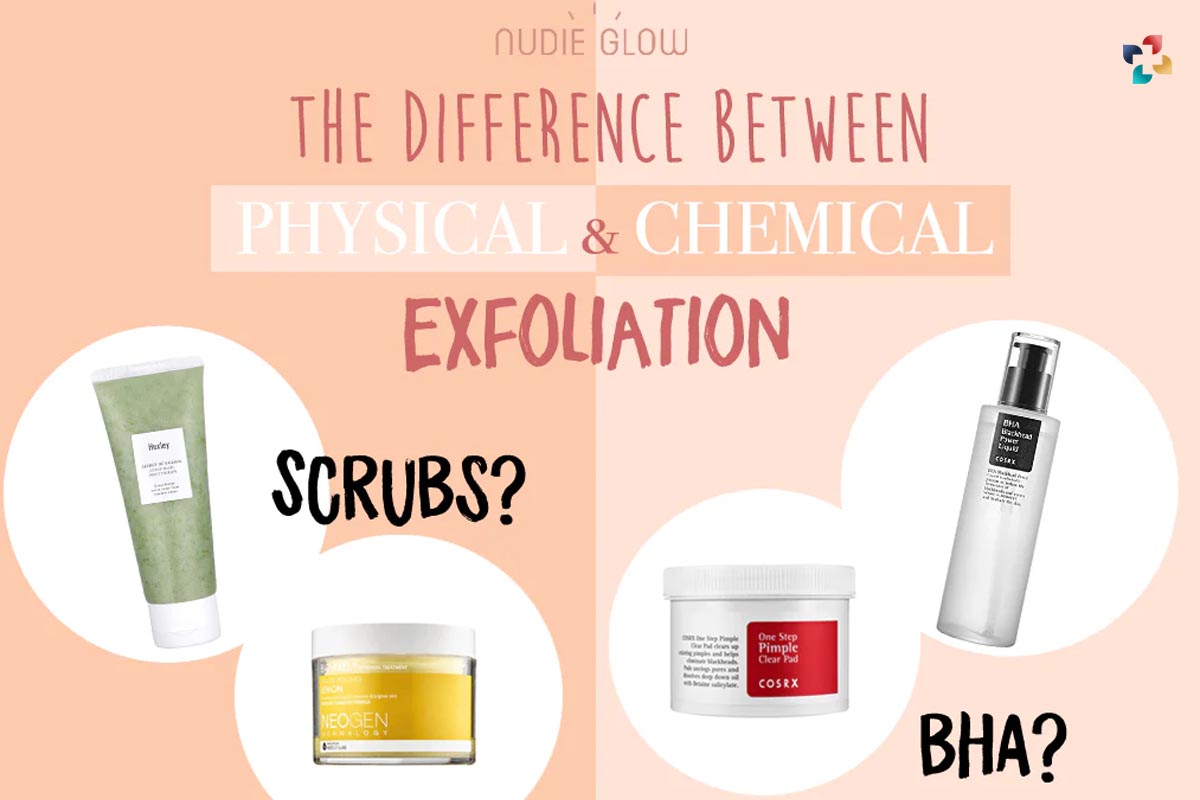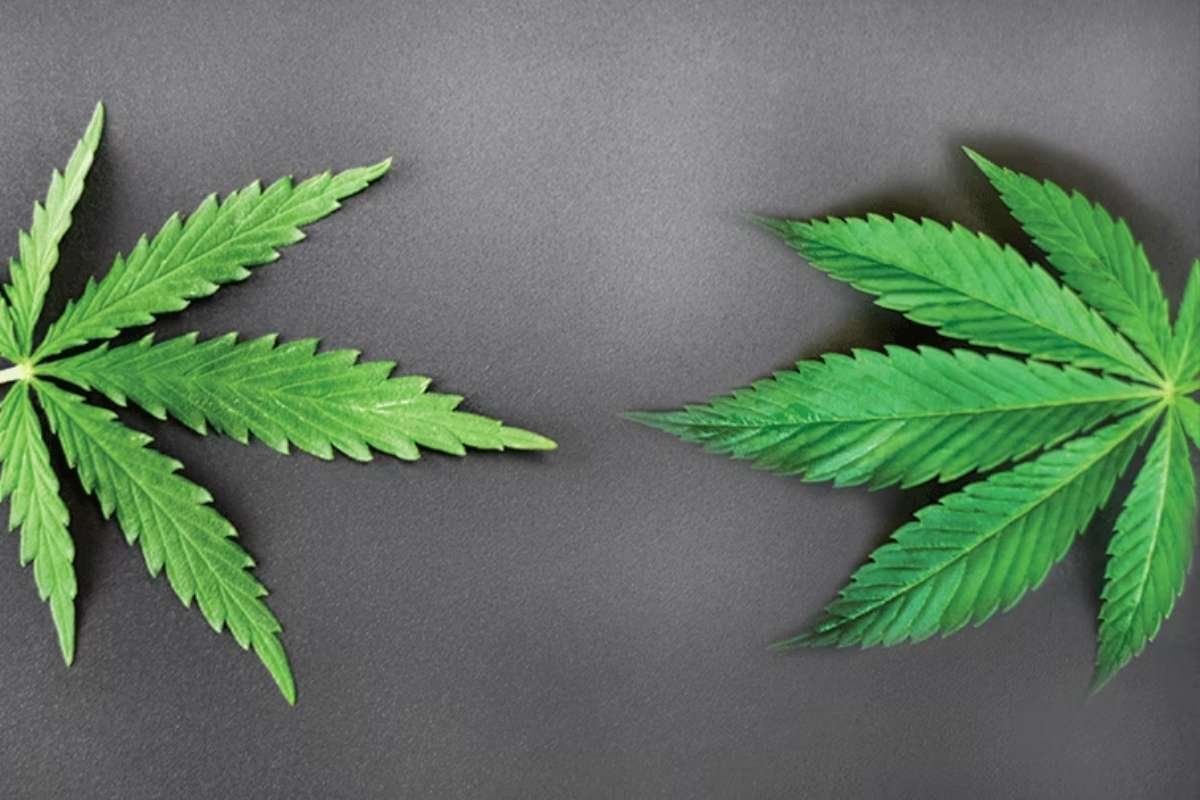Are you looking for some exfoliation products for your skin? There is a debate among the experts regarding the physical and chemical exfoliation process, which one is better? The process of exfoliation includes the removal of dead skin cells from the surface of the skin. Physical and chemical exfoliation are the two most common forms of the process.
Chemical exfoliation is becoming more popular these days and has become a topic of curiosity. However, physical exfoliation has been the traditional part of the skincare routine. Once you understand the basic difference between Physical and Chemical Exfoliation may get clarity over which one is better for your skin. In this piece, we will compare and contrast the two different approaches of exfoliation that have been mentioned.
The process of exfoliation, which includes the removal of dead skin cells from the surface of the skin in order to reveal a complexion that is smoother and more radiant, is an essential step in any skincare program. Physical and chemical exfoliation are the two most common forms of the process. In this piece, we will compare and contrast the two different approaches of exfoliation that have been mentioned.
Physical Exfoliation
Using a device or product to physically scrape away dead skin cells from the surface of the skin is what is meant by the term “physical exfoliation.” You may do this task by utilizing a scrape or an exfoliating brush. The following is a list of some of the advantages and disadvantages of using physical exfoliation:

Benefits
1. Instant results
The removal of dead skin cells, which is accomplished via the use of a physical exfoliant, may provide visible improvements almost immediately.
2. Enhanced sense of touch
The skin’s texture may be improved through physical exfoliation by eliminating rough spots and evening out uneven regions on the surface of the skin.
3. Improved gastrointestinal product uptake
The removal of the barrier of dead skin cells that may hinder skincare products from reaching the skin is accomplished by the process of physical exfoliation, which can aid to improve the absorption of skincare products.
Drawbacks
1. Over-exfoliation
An excessive amount of exfoliation may cause irritation, inflammation, and redness of the skin. It is also capable of causing sensitivity in the skin as well as barrier degradation.
2. Not appropriate for all skin types
It is possible that certain people’s skin types, particularly those with sensitive skin or disorders such as eczema or rosacea, are not good candidates for physical exfoliation.
3. Maybe rough in texture
Certain types of physical exfoliants might be overly rough for the skin, which can result in microscopic tears or other skin damage.
Scrubs, brushes, and instruments like konjac sponges and microdermabrasion are all examples of different types of physical exfoliants.
Chemical Exfoliation
In the process of chemical exfoliation, acids or enzymes are used to break down the bonds that hold dead skin cells together. This makes it possible for the cells to be more readily peeled away from the skin’s surface. Alpha-hydroxy acids, often known as AHAs, and beta-hydroxy acids are the two primary forms that chemical exfoliants may take (BHAs).
AHAs are water-soluble acids that perform their function in the body by dissolving the bonds that hold dead skin cells together. Glycolic acid, lactic acid, and mandelic acid are examples of these types of acids, and they are commonly obtained from fruits and milk.
BHAs are oil-soluble acids that perform their function by infiltrating the pores and dissolving the accumulation of dead skin cells and sebum. In most cases, they are produced from salicylic acid, and their use is recommended for oily and acne-prone skin types.

The following is a list of some of the advantages and disadvantages of chemical exfoliation:
Benefits
1. Gentle:
It is not necessary to scrape or massage the skin vigorously while using chemical exfoliants since they are kind to the skin.
2. Customizable
Chemical exfoliants are available in a variety of intensities and formulas, which enables users to tailor their exfoliation regimen to their skin type and the specific problems they have with their skin.
3. Purge to the depths
The buildup and pollutants that might lead to acne and outbreaks can be removed from the pores using chemical exfoliants that are able to penetrate deep into the skin.
Drawbacks
1. Sensitivity
While using chemical exfoliants, some individuals, particularly those with sensitive skin, may feel discomfort or irritation. This is especially likely.
2. Sun sensitivity

Since using chemical exfoliants might enhance sun sensitivity, it is essential to use sunscreen and stay out of the sun for extended periods of time.
Drying: Some chemical exfoliants, particularly those with strong acid concentrations, have the potential to leave the skin feeling dry after use.
Chemical exfoliants may be broken down into two categories: alpha hydroxy acids (AHAs), such as glycolic acid and lactic acid, and beta hydroxy acids (BHAs), such as salicylic acid.
Which is Better in Physical and Chemical Exfoliation?
While physical and chemical exfoliation each has its own set of advantages and disadvantages, there is no solution to this topic that is applicable to everyone. Your skin type, your worries, and your own personal preferences will all play a role in determining the technique of exfoliation that will work best for you.
Nevertheless, people who have skin that is highly irritated or sensitive should choose chemical exfoliation rather than physical exfoliation since chemical exfoliation is less harsh on the skin and less likely to cause harm. Since they are able to get very deep into the pores and remove buildup and impurities, BHAs may be beneficial to those who have oily skin or skin that is prone to acne.

On the other hand, people who have normal to dry skin may benefit from the use of physical exfoliation since it may assist to improve the texture of the skin and boost product absorption. To minimize damage to the skin barrier, it is essential to make use of physical exfoliants that are mild and to refrain from exfoliating for an excessively long period of time.
In addition, it is essential to keep in mind that both physical and chemical exfoliation should be avoided on a too regular basis. Exfoliating the skin more than necessary may cause damage to the protective barrier of the skin, which can result in irritation and inflammation. Depending on the nature of your skin and the potency of the exfoliant, it is best to limit the number of times per week that you exfoliate to no more than two or three.
BOTTOM LINE
In conclusion of physical and chemical exfoliation, the removal of dead skin cells and an improvement in the skin’s texture and appearance may be accomplished successfully with the use of either physical or chemical exfoliation. But, the kind of exfoliation that will work best for you will be determined by the characteristics of your skin as well as your worries and personal preferences.
In order to minimize damage to the skin barrier, it is important to make use of exfoliants that are mild and to refrain from exfoliating for an excessively long period of time. While using chemical exfoliants, it is essential to protect the skin by using sunscreen and avoiding lengthy contact with the sun, since these products might make the skin more sensitive to the sun.
If you make exfoliation a regular part of your skincare regimen, you may enhance the general health of your skin as well as attain a complexion that is more radiant and smooth. I hope this article” The differences between physical and chemical exfoliation ” helps you a lot. visit our website for more informative articles.
Also Read: 10 Preventive Skincare Products you must have in Your Routine
: The Differences Between Physical and Chemical Exfoliation








